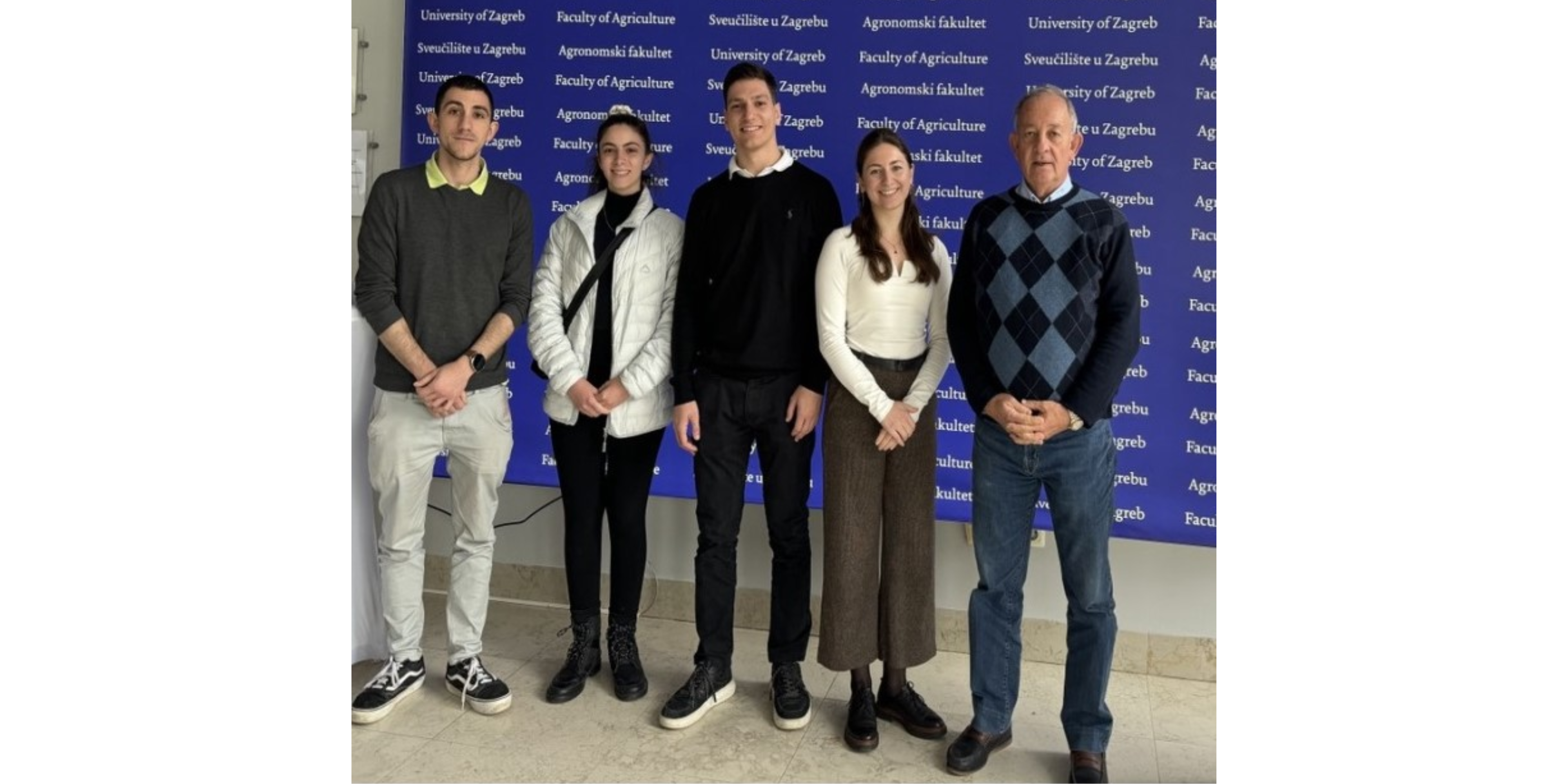As part of the project, UNIC students attended a winter school on Climate Smart Agriculture, at the University of Zagreb Faculty of Agriculture
The University of Nicosia participates in the European Research Project Erasmus+, Geo-CLIC (Geoinformatics Climate Change, https://geoclic.be/), which aims to contribute to the reversal of climate change and the return of the global climate to a more sustainable level through the use of geoinformatics technology and the utilisation of Geographic Information Systems and Remote Sensing to analyse available information, data, draw useful conclusions and adopt the necessary policy changes.
The project is coordinated by the Free University of Brussels (Vrije Universiteit Brussel), while partners in the project in addition to the University of Nicosia are the Technical University of Valencia (Universitat Politècnica de València), the University of Zagreb (Sveučilište u Zagrebu) and the Weihenstephan-Triesdorf University of Applied Sciences (Hochschule Weihenstephan-Triesdorf). The coordination of the project at the University of Nicosia is carried out by the Rector, Professor Philippos Pouyioutas, assisted by the Senior Administrator to the Rectorate, Mr Kyriakos E. Georgiou.
As part of the project, during the week of February 05 – 09, 2024, students from all participating universities attended a winter school on Climate Smart Agriculture, at the University of Zagreb Faculty of Agriculture. The lectures and hands-on workshops included, among others, subjects in Challenges Faced in Agriculture due to Climate Change, Remote Sensing Applications in Agriculture, GIS Applications in Agriculture and Derivation of Soil Erosion Risk Map.
The University of Nicosia was represented by:
- Alisa Illarionova, undergraduate student – Data Science,
- Stefania Germena, undergraduate student – Mechanical Engineering,
- Andreas Kyriakides, postgraduate student – Data Science,
- Petros Demosthenous, postgraduate student – Business Administration.
The students were accompanied by Mr Kyriakos E. Georgiou.
Source: The University of Nicosia | News (https://shorturl.at/zIPR1)
